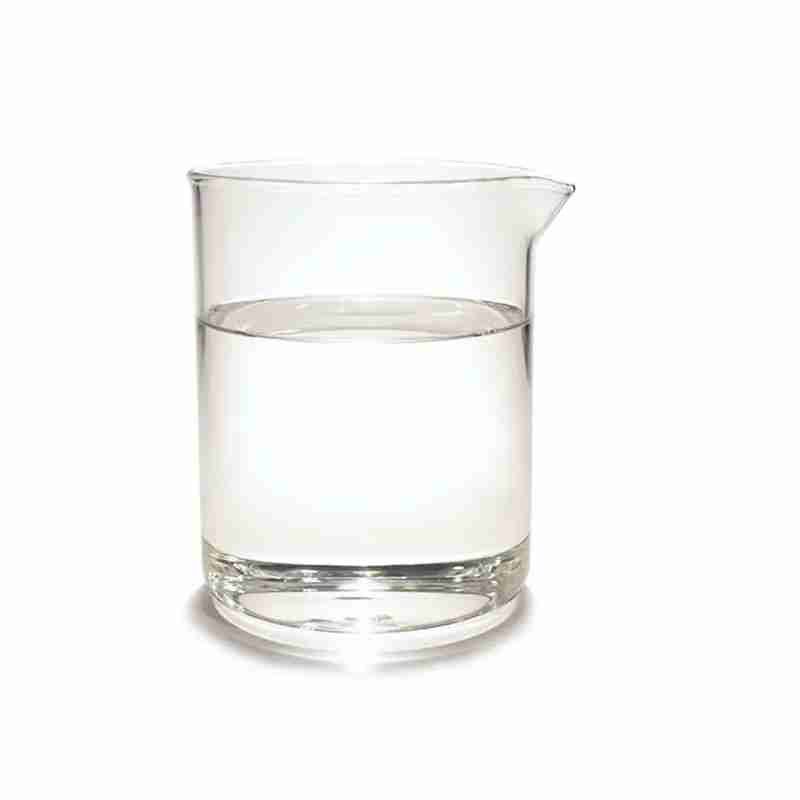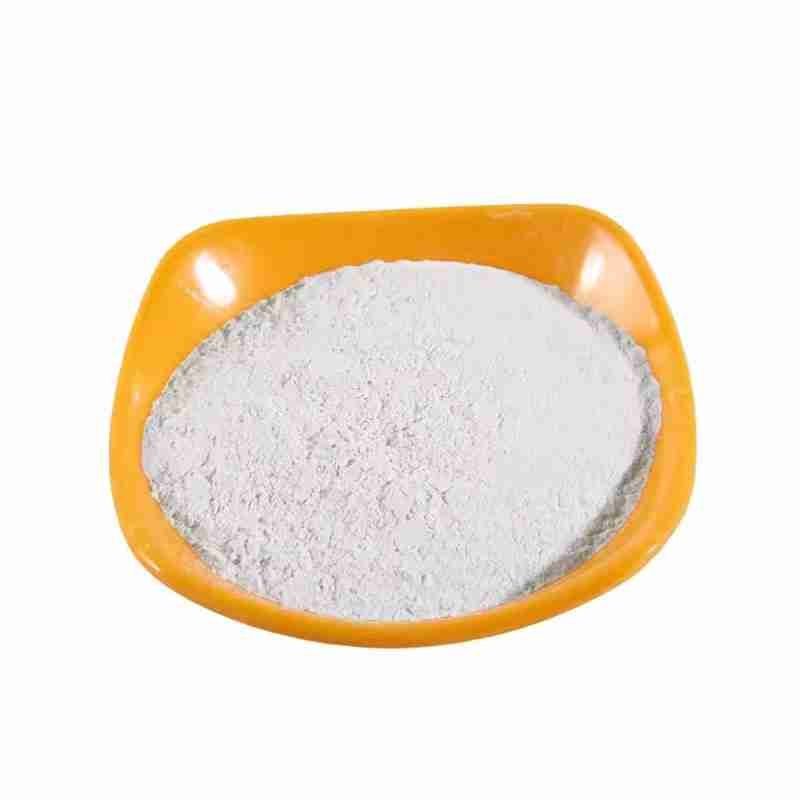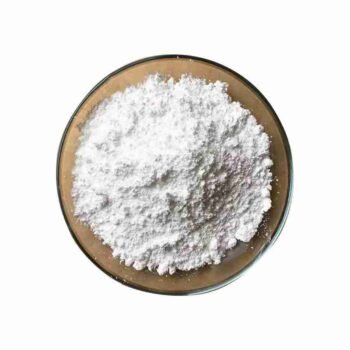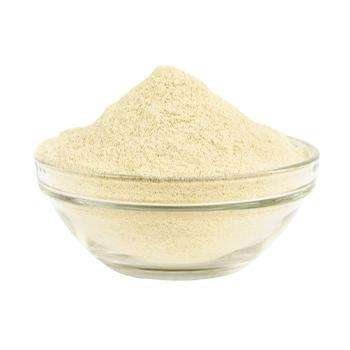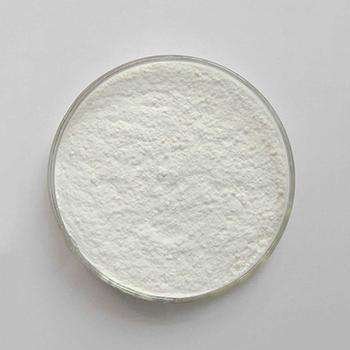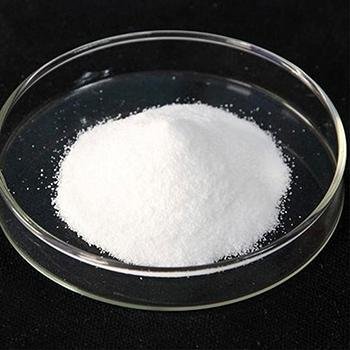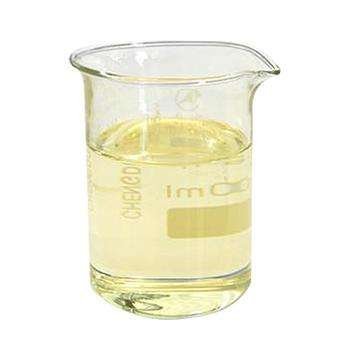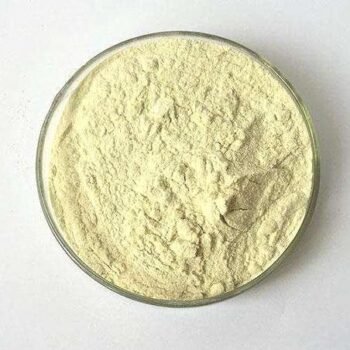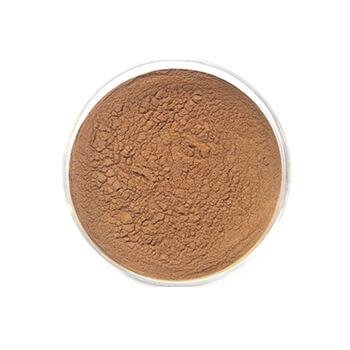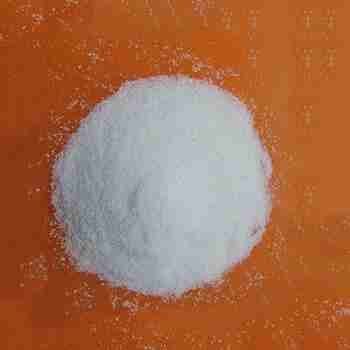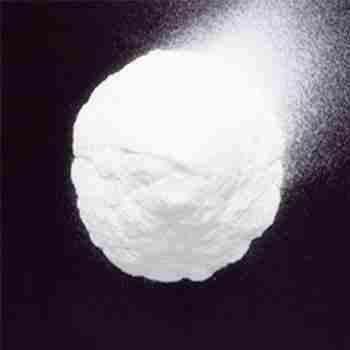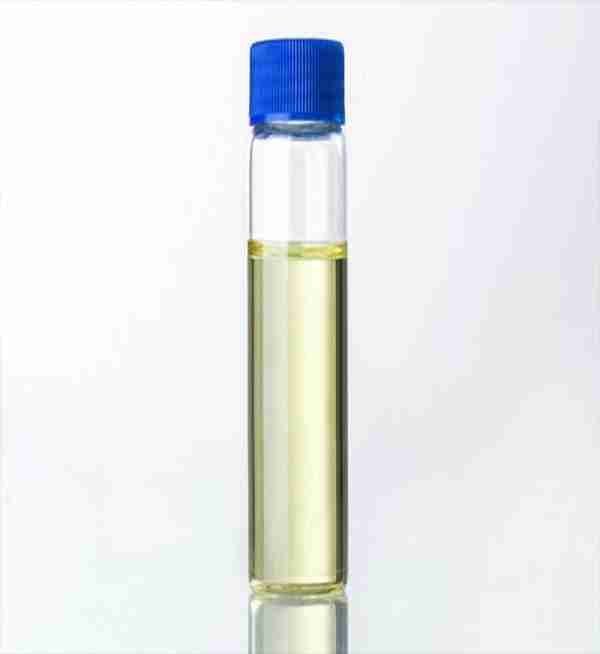Dodecylbenzenesulphonic acid CAS# 27176-87-0
Dodecylbenzenesulphonic acid(DBSA) can be used as a catalyst for the esterification of fatty acids (oleic acids) to produce biodiesel. It can be used as a Bronsted acid catalyst for the green synthesis of quinoxaline derivatives which are used in a variety of pharmacological profiles. It may be electrodeposited with polypyrrole(PPy) films on the aluminium alloy to protect against corrosion. Water based nanofluids with enhanced thermal conductivity and specific heat capacity may be prepared by doping polyanaline (PANI) into dodecylbenzenesulphonic acid. Dodecylbenzenesulphonic acid is also a dopant for conducting polymers and a strong acid catalyst for amino crosslinked coatings.
发送询盘
Dodecylbenzenesulphonic acid CAS# 27176-87-0
| Dodecylbenzenesulphonic acid Basic information |
| Product Name: | Dodecylbenzenesulphonic acid |
| Synonyms: | calsoftlas99;dodecylbenzenefulfonic;dodecylbenzenefulfonicacid;dodecyl-benzenesulfonicaci;e7256;elfanwasulphonicacid;marlonas3;nacconol98sa |
| CAS: | 27176-87-0 |
| MF: | C18H30O3S |
| MW: | 326.49 |
| EINECS: | 248-289-4 |
| Product Categories: | Intermediates of Dyes and Pigments;Polyanilines and Polyaniline DopantsPolymer Science;Polymerization and Polymer Property Modifiers;Conducting Polymers and Monomers;Organic Conductors and Photovoltaics: OFET and OPV Materials;Polymer Additives;bc0001 |
| Mol File: | 27176-87-0.mol |
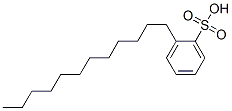 |
|
| Dodecylbenzenesulphonic acid Chemical Properties |
| Melting point | 10??C |
| Boiling point | 82???C |
| density | 1.06?g/mL?at 20???C(lit.) |
| vapor pressure | 0Pa at 25?? |
| refractive index | n20/D?1.51 |
| Fp | 85???F |
| storage temp. | 2-8??C |
| solubility | water, alcohols, glycol ethers, glycols, esters, ketones, aromatic and aliphatic hydrocarbons: soluble |
| pka | 0.7[at 20 ??] |
| form | Colourless Solution |
| color | Colorless to light yellow |
| Water Solubility | 100mg/L at 25?? |
| Stability: | Stable. Hygroscopic. Incompatible with bases, oxidizing agents, metals. |
| LogP | 4.78 at 25?? |
| CAS DataBase Reference | 27176-87-0(CAS DataBase Reference) |
| EPA Substance Registry System | Dodecylbenzenesulfonic acid (27176-87-0) |
- 2
- 2-diallylpent-4-en-1-amine
- 4
- 95-16-9
- Ammonium sulfamate
- Benzothiazole
- cas:67889-00-3ح2
- cas:83524-75-8 | pigment black 32
- cas:928836-00-4 | 2
- cas:932745-70-5 | 4
- Chemical Minerals
- Coconut diethanolamide
- Daily Chemicals
- discount
- for sale
- General pvc resin
- hexyl D-glucoside
- in stock
- Lauramidopropyl betaine
- LAURIC ACID MONOETHANOLAMIDE
- Petroleum Additives
- Plasticiser
- Ploymers
- price
- PVC
- quotation
- Raw Materal
- Remove term: Petroleum Additives Petroleum Additive
- SODIUM ETHYL 2-SULFOLAURATE
Related Products
Decyl Glucoside is an eco-friendly, non-ionic surfactant derived from renewable resources. Renowned for its mildness and biodegradability, it is ideal for creating gentle, high-performing cleaning agents in personal care and household products. Its sustainable and effective nature makes it a preferred choice for green formulations.
Sodium Ethyl 2-Sulfolaurate is a surfactant with a unique combination of properties. It is an anionic compound, derived from the sulfonation of ethyl laurate, which is then neutralized with sodium hydroxide. This results in a product that is highly effective in lowering the surface tension of water, making it an excellent wetting agent and emulsifier. It is commonly used in personal care products, detergents, and industrial applications for its foaming and dispersing capabilities. As a mild and biodegradable ingredient, it is favored for its environmental and skin-friendly attributes, ensuring safety and performance in a variety of formulations.
Lauryl Glucoside is an eco-conscious non-ionic surfactant, derived from sustainable lauric acid and glucose. It offers superior mildness and biodegradability, making it an ideal choice for formulating gentle and effective cleaning agents in personal care and household products. Its bio-based nature aligns with the growing demand for green chemistry solutions.
Lauramidopropyl betaine is a mild, biodegradable surfactant commonly used in personal care products and cleaning formulations. It is derived from coconut oil and is known for its foaming and wetting properties, making it ideal for creating rich lathers. This ingredient is particularly favored for its gentleness on the skin and its ability to cleanse without causing irritation, making it suitable for sensitive skin types. It also contributes to the product’s viscosity and stability.
Chemical Name: Arabic gum
CAS No.: 9000-01-5
Appearance: powder
Chemical Name: Zinc citrate
Synonyms: Zinc citrate trihydrate
CAS No.: 546-46-3
Molecular Formula: C6H8O7Zn
Molecular Weight: 257.5
Appearance: White powder
Chemical Name: UV-120
Other Name: (2’,4’-Di-tert-butylphenyl 3,5-di-tert-butyl-4-hydroxybenzoate)
CAS No.: 4221-80-1
Molecular Fomula: C29H42O3
Molecular weight: 438.66
Assay: ≥99%(LC)
Monostearin is a versatile emulsifier and emollient derived from glycerol and stearic acid. It is instrumental in stabilizing emulsions and enhancing the texture and consistency of a wide range of products in the cosmetics, food, and pharmaceutical sectors.
Decyl glucoside, scientifically known as ??-D-Glucopyranoside, is a non-ionic surfactant derived from renewable resources, such as glucose and fatty alcohols. It is a biodegradable and mild alternative to traditional surfactants, making it a preferred choice for eco-friendly and sensitive skin formulations.
This compound is characterized by its ability to form stable emulsions and foams, which are essential properties in a variety of applications, including personal care products and household cleaning agents. Decyl glucoside is valued for its low irritation potential and excellent skin compatibility, making it suitable for use in baby care and cosmetic products.
Chemically, decyl glucoside features a hydrophilic head and a hydrophobic tail, allowing it to effectively reduce surface tension and solubilize oils in water. Its mildness and biodegradability contribute to its use in formulations that require gentle cleansing without compromising the integrity of the skin’s natural barrier.
In summary, decyl glucoside is a versatile and sustainable surfactant that offers a balance of performance and safety. Its eco-friendly profile and compatibility with sensitive skin types make it an ideal ingredient for a wide range of personal care and cleaning products.
Chemical Name: Potassium Castorate
CAS No.: 8013-05-6
Molecular Formula: C57H107K3O12
Molecular Weight: 1101.74718
Appearance: Yellow Liquid
Chemical Name: o-Xylene
Synonyms: 1,2-Dimethylbenzene; ortho-xylene
CAS No.: 95-47-6
Molecular Formula: C8H10
Molecular Weight: 106.17
Chemical Name: Ashwagandha Extract
Synonyms: Withania somnifera, ext.; Withania Somnefera Extract
CAS: 90147-43-6
Appearance: Brown

